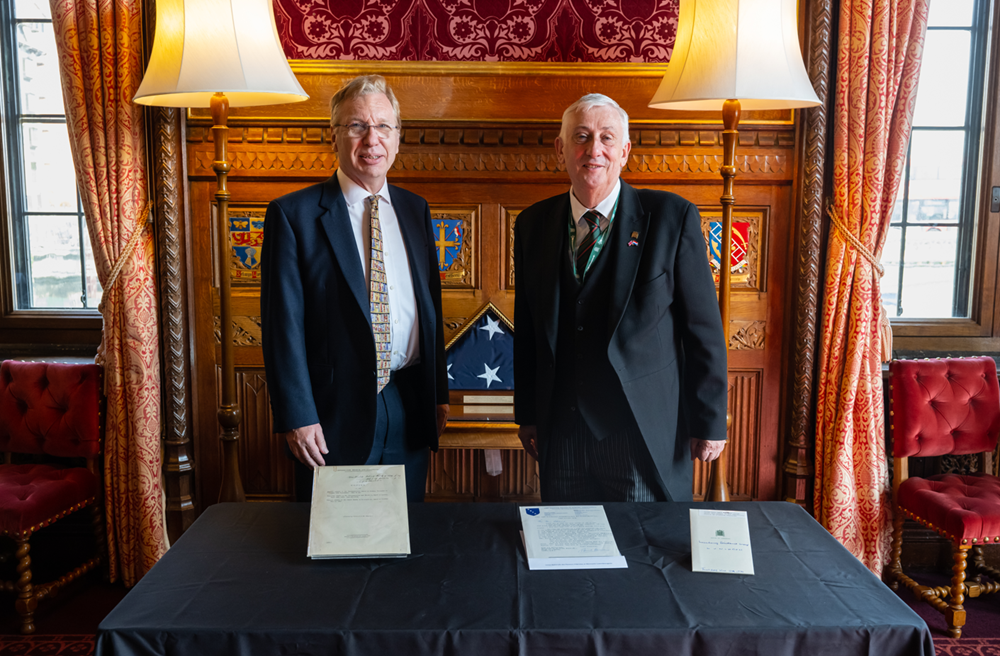Speaker discusses WW2 resistance with Luxembourg ambassador
19 June 2023
The role of resistance fighters who fought the Nazi occupation of Luxembourg during the Second World War was a topic of discussion during a meeting between the Speaker of the House of Commons and the country’s ambassador to the UK.
Sir Lindsay Hoyle showed His Excellency Georges Friden a letter uncovered by the Parliamentary Archives from the British Reserve Forces Association, which detailed a visit by the Luxembourgers to Parliament in 1970.
The Speaker said the discovery was ‘incredible’ and showed the warmth of the historic relationship between the two countries.
The resistance fighters were members of UPAFIL – a group of individuals who smuggled compatriots out of the country to avoid German military service, following the invasion of Luxembourg on 10 May 1940.
They, and their families, faced grave danger as the occupiers tried to stamp out any form of resistance.
In 1970, members of the group were invited by Airey Neave MP - the first British prisoner-of-war to succeed in escaping from Colditz during the Second World War – to a lunch in the House of Commons.
Constituency business meant Mr Neave was unable to attend, so the visit was hosted by Leominster MP Sir Clive Bossom instead.
In a thank you letter to Mr Neave’s secretary from the event’s organiser, Captain Bernard R Hanauer, of the British Reserve Forces Association, he said: ‘I am so grateful to you all for having made all this possible.
‘They are such good people, the Luxembourgers, they really deserve it. Besides, they will be thrilled enormously.’
There is now at least one monument specifically dedicated to UPAFIL, in the south of Luxembourg.
Dutch-born Capt Hanauer was himself a determined opponent of the Nazi regime and spent some time in the Dachau concentration camp.
Shadow Northern Ireland Secretary Airey Neave was assassinated by a car bomb when he left the House of Commons car park on 30 March 1979. The Irish National Liberation Army claimed responsibility.
- During his visit to Mr Speaker, the ambassador was shown the ‘Treaty relative to the Grand Duchy of Luxembourg’, signed in London in May 1867, following the Austro-Prussian War. The Treaty ordered Prussia to withdraw its garrison, and the fortress in Luxembourg City was dismantled. In response, France agreed to renounce its territorial claim on Luxembourg - and the Grand Duchy was declared perpetually neutral and became independent.
